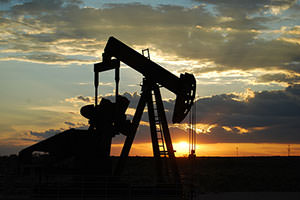U.S. Could Overtake Saudi Arabia as World’s Biggest Oil Producer
By the end of the decade, the United States will produce more barrels of oil per day than Saudia Arabia and more gas than Russia, according to a report by the intergovernmental International Energy Agency.
By the end of the decade, the United States will produce more barrels of oil per day than Saudia Arabia and more gas than Russia, according to a report by the intergovernmental International Energy Agency.
The cause of this oil and gas boom is, as you might expect, fracking, the highly controversial method of extracting fossil fuels that has mobilized environmentalists across the country due to its toxic consequences.
As the BBC reports:
The IEA predicts that the US will be producing 11.1 million barrels per day by 2020, compared with 10.6 million from Saudi Arabia.
Currently the US imports about 20% of its total energy needs.
The IEA also expects that the US will overtake Russia as the word’s biggest gas producer by 2015, again thanks to fracking, which can also be used to extract natural gas.
At this point you may be wondering what the International Energy Agency is. Good question. We’ll spare you the trip to Wikipedia:
The International Energy Agency (IEA; French: Agence internationale de l’énergie) is a Paris-based autonomous intergovernmental organization established in the framework of the Organisation for Economic Co-operation and Development (OECD) in 1974 in the wake of the 1973 oil crisis. The IEA was initially dedicated to responding to physical disruptions in the supply of oil, as well as serving as an information source on statistics about the international oil market and other energy sectors.
The IEA acts as a policy adviser to its member states, but also works with non-member countries, especially China, India, and Russia. The Agency’s mandate has broadened to focus on the “3Es” of effectual energy policy: energy security, economic development, and environmental protection.[1] The latter has focused on mitigating climate change.[2] The IEA has a broad role in promoting alternate energy sources (including renewable energy), rational energy policies, and multinational energy technology co-operation.
According to the IEA’s executive director, the focus should not be limited to supply alone: “This year’s World Energy Outlook shows that by 2035, we can achieve energy savings equivalent to nearly a fifth of global demand in 2010. In other words, energy efficiency is just as important as unconstrained energy supply, and increased action on efficiency can serve as a unifying energy policy that brings multiple benefits.”
The natural gas boom has been a huge job creator in the U.S., despite the potentially horrifying environmental consequences, and both candidates in the recent presidential election seemed to agree that the U.S. should exploit more of its energy reserves.
— Posted by Peter Z. Scheer. Follow him on Twitter: @peesch.
Your support matters…Independent journalism is under threat and overshadowed by heavily funded mainstream media.
You can help level the playing field. Become a member.
Your tax-deductible contribution keeps us digging beneath the headlines to give you thought-provoking, investigative reporting and analysis that unearths what's really happening- without compromise.
Give today to support our courageous, independent journalists.






You need to be a supporter to comment.
There are currently no responses to this article.
Be the first to respond.